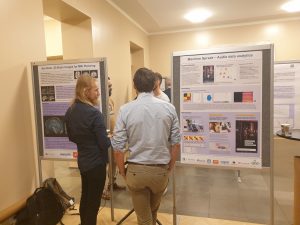The 16th ACM/IEEE International Symposium on Empirical Software Engineering and Measurement (ESEM2022)
19-23 September 2022
Helsinki, Finland
The ACM/IEEE International Symposium on Empirical Software Engineering and Measurement (ESEM) is the premier conference for presenting research results related to empirical software engineering. ESEM provides a stimulating forum where researchers and practitioners can present and discuss recent research results on a wide range of topics, in addition to exchanging ideas, experiences and challenging problems.
The theme for this year’s ESEM is “A new normal in Software Engineering!?”, which refers to the times we have after the pandemic. The theme essentially asks how the research, education or practice of Software Engineering may have changed for good. However, there is also the question of how much is new, or is it all just normal Software Engineering, perhaps something being applied more extensively? In addition to regular submissions, we encourage all kinds of contributions addressing the theme, be it vision papers, case reports, industrial experience reports, surveys, and so on.
Important Dates
(All dates are end of the day, anywhere on earth)
Technical Papers and Emerging Results and Vision Papers
Abstract submission: April 25, 2022
Paper submission: May 2, 2022
Notification: June 17, 2022
Journal-First Track
Submission: July 7, 2022
Notification: August 15, 2022
Industry Forum
Submission: August 13, 2022
Notification: September 1, 2022
Registered Reports Track
Submission: June 30, 2022
Initial Reviews: July 26, 2022
Notification of Stage 1: August 25, 2022
Doctoral Symposium
Submission: June 22, 2022
Notifications: July 22, 2022
Conference Organization
General Chair
Casper Lassenius, Aalto University, Finland
Program Co-Chairs
Tayana Conte, Universidade Federal do Amazonas, Brazil
Tomi Männistö, University of Helsinki, Finland
Emerging Results and Vision Papers Co-Chairs
Paris Avgeriou, University of Groningen (RuG), Netherlands
Marco Kuhrmann, University of Passau, Germany
Journal First Chair
Dietmar Pfahl, University of Tartu, Estonia
Industry Talks Co-Chairs
Tommi Mikkonen, University of Jyväskylä
Niko Mäkitalo, University of Helsinki, Finland
Registered Reports Co-Chairs
Maria Teresa Baldassarre, University of Bari, Italy
Neil Ernst, University of Victoria, Canada
Doctoral Symposium Chair
Maria Paasivaara, LUT University, Finland & Aalto University, Finland
Proceedings Chair
Fernanda Madeiral, KTH Royal Institute of Technology (Sweden)l
Social Media and Publicity Co-Chairs
Adolfo Neto – Universidade Tecnológica Federal do Paraná (UTFPR), Brazil
Nelly Condori Fernandez – University of A Coruña/ Vrije Universiteit Amsterdam, The Netherlands
Local Organizing Chair
Fabian Fagerholm, Aalto University, Finland
Conference Organizer
Mary-Ann Alfthan, Aalto University, Finland
Web Chair
Bettina Lehtelä, Aalto University, Finland
